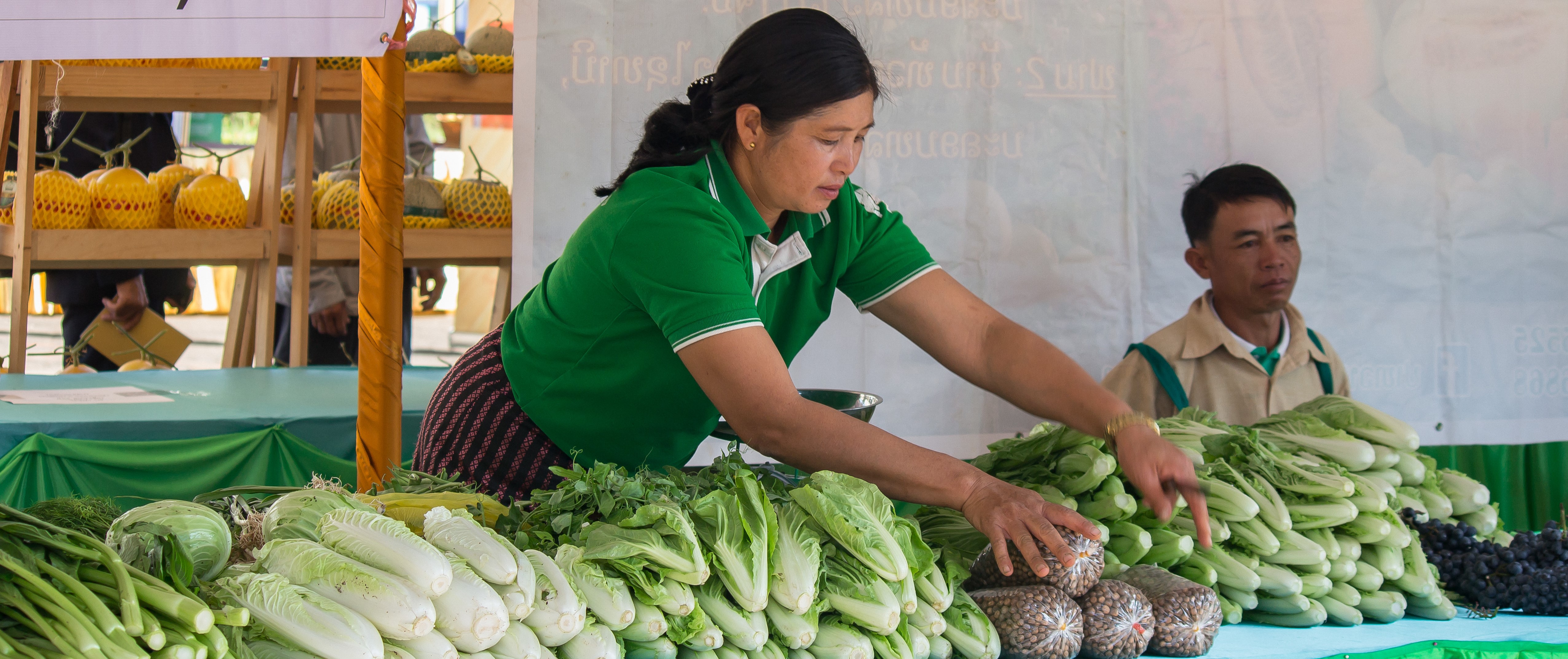Meeting Date
24 March 2020
10:00 - 10:00 hrs.
Location
Bangkok, Thailand
Body
Pre-event to the Asia-Pacific Forum on Sustainable Development
Sustainable Trade: What role for Voluntary Sustainability Standards?
New Update: This event has been postponed until further notice due to the Novel Coronavirus (COVID-19) situation. The APFSD has also been postponed. Thank you for your kind understanding.
Background
Over the past decades, gains from trade-led growth have helped lift millions out of poverty in the Asia-Pacific region. At the same time, increases in production and trade have led to overuse of natural resources, increased emissions, and increased inequalities. Developing countries still depend heavily on natural resource-based products for their exports and growth. Thus, greening global trade will be important to achieve sustainable development.
Voluntary sustainability standards (VSS) can play a role in this regard. They are private standards used to ensure that a product is produced, processed or transported in accordance with certain sustainability metrics, such as its environmental impact, basic human rights, labour standards, and gender equality. In many instances, the targeted metrics overlap with the entry points for transformation required to achieve the SDGs at the scale and speed needed, as identified in the Global Sustainable Development Report: human well-being and capabilities; sustainable and just economies; sustainable food systems and healthy nutrition; energy decarbonization and access; urban and peri-urban development; and global environmental commons.
The green market, i.e. the market for sustainably produced goods and services, shows the fastest growth. Carrying a VSS as a proof of sustainable production can help developing-country producers and businesses access the fast-growing and lucrative green market. However, certifying for VSS can be a significant challenge to smallholder producers and micro/small businesses in developing countries. A supportive policy framework is needed to ensure that smallholders and small businesses get fair access to the green market, in a manner that benefits them economically, socially and environmentally.
Objective
Against the above and as a pre-event to the 7th Asia-Pacific Forum on Sustainable Development (APFSD), UN ESCAP and UNCTAD organize this event jointly to discuss the role of VSS in greening trade, thus advancing the transition towards more sustainable food systems, one of the six priority pathways of the Global Sustainable Development Report, and helping smallholder producers and micro and small businesses in the Asia-Pacific region make greater and sustainable economic gains from green trade.
Against the above and as a pre-event to the 7th Asia-Pacific Forum on Sustainable Development (APFSD), UN ESCAP and UNCTAD organize this event jointly to discuss the role of VSS in greening trade, thus advancing the transition towards more sustainable food systems, one of the six priority pathways of the Global Sustainable Development Report, and helping smallholder producers and micro and small businesses in the Asia-Pacific region make greater and sustainable economic gains from green trade.
The meeting is open to all UN Member States, specialized agencies, intergovernmental bodies and non-governmental organizations in the general category, as well as academia, research institutions and the private sector. The focus of discussion may be primarily addressed to government experts, businesses and non-governmental organizations from the Asian and Pacific States.
Key Questions
What are the opportunities presented by expanding markets for green goods and services?
What role can Voluntary Sustainability Standards play in greening trade?
What policy actions are needed to support SMEs in entering these growing market segments?
The event will share knowledge, learnings, and good practices of green trade based on the experience of governments and international organizations, findings from the implementation of the UNCTAD project Fostering green exports through VSS and the UN ESCAP Asia-Pacific Trade and Investment Report 2019 Navigating Non-tariff Measures towards sustainable development, as well as on the activities of the United Nations Forum on Sustainability Standards (UNFSS).
Language(s)
English


